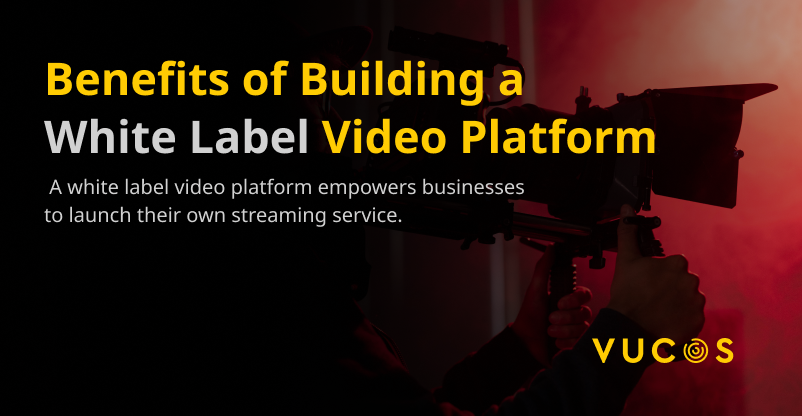4K & Low-Latency Streaming: Elevating Viewer Experience - Insights from CABSAT 2025
- Didem Sübar
- May 15, 2025
- 4 min read
The streaming landscape of 2025 stands at a transformative crossroads, where 4K streaming has evolved from a luxury offering to an essential service requirement.
As CABSAT 2025 draws to a close, industry leaders and technical experts have converged to share groundbreaking insights into the future of high-quality content delivery.
With 20% of live streams now operating in 4K quality, this technological shift represents more than just an improvement in resolution – it signifies a fundamental change in how we approach content delivery and viewer experience.

The Evolution of 4K Streaming: A Technical Renaissance
The journey toward widespread 4K streaming adoption has been marked by significant technological breakthroughs and infrastructure developments. In 2025, we're witnessing an unprecedented convergence of enabling technologies that make 4K streaming not just possible, but highly efficient and economically viable.
Understanding the Technical Foundation
At its core, 4K streaming requires handling four times the data of traditional HD content. This increased data load demands sophisticated solutions across the entire delivery chain. Modern 4K streaming platforms must process approximately 15-20 Mbps per stream, compared to the 3-5 Mbps required for HD content. This quadrupling of data presents unique challenges that require innovative solutions.
Compression Technologies and Codecs
The latest generation of video codecs has revolutionized 4K content delivery. The adoption of advanced compression standards such as H.266/VVC (Versatile Video Coding) and AV1 has achieved compression efficiencies that were unimaginable just a few years ago. These codecs deliver several crucial advantages:
Reduced bandwidth requirements by up to 50% compared to HEVC
Improved quality retention during compression
Enhanced adaptability for varying network conditions
Lower latency in encoding and decoding processes
Infrastructure Requirements: Building the Foundation
The delivery of premium 4K content demands a robust and scalable infrastructure. At CABSAT 2025, industry experts have highlighted several critical components necessary for successful 4K streaming implementation.
Server Architecture
Modern 4K streaming platforms require a distributed server architecture that can handle massive data throughput while maintaining low latency.
Key components include:
High-performance encoding servers with dedicated GPU acceleration
Distributed processing nodes for regional content delivery
Redundant storage systems with high-speed I/O capabilities
Real-time transcoding capabilities for multi-device delivery
Network Optimization Strategies
Successful 4K streaming relies heavily on optimized network infrastructure. VUCOS's approach to network optimization encompasses:
Multi-CDN Architecture
Dynamic CDN switching based on performance metrics
Geographic load balancing for optimal delivery
Edge computing integration for reduced latency
Predictive content placement algorithms
Buffer Management Systems
Adaptive bitrate optimization using AI-driven analytics
Smart chunk sizing for different content types
Dynamic buffer control based on network conditions
Real-time encoding adjustments for quality maintenance
Quality of Experience: The Technical Metrics
Measuring and maintaining streaming quality requires sophisticated monitoring systems and clear performance metrics. Modern 4K streaming platforms must track:
Video Quality Metrics
VMAF (Video Multimethod Assessment Fusion) scores
PSNR (Peak Signal-to-Noise Ratio) measurements
SSIM (Structural Similarity Index) analysis
JND (Just Noticeable Difference) evaluations
Performance Monitoring
End-to-end latency tracking
Buffer health monitoring
Network performance analytics
User engagement metrics
Real-World Implementation: Case Studies from CABSAT 2025
Several successful implementations of 4K streaming solutions were showcased at CABSAT 2025, demonstrating the practical application of these technologies.
Case Study: Large-Scale Sports Broadcasting
A major sports broadcaster implemented VUCOS's 4K streaming solution for their premium sports content. The results included:
40% reduction in delivery costs
99.99% uptime during peak events
Sub-second latency for live sports
50% improvement in viewer engagement
Future-Proofing Streaming Infrastructure
The future of streaming extends beyond current 4K capabilities. Forward-thinking organizations must prepare for:
8K Content Delivery
Infrastructure scalability for higher resolutions
Advanced compression technologies
Enhanced storage solutions
Upgraded network capabilities
AI and Machine Learning Integration
Automated quality optimization
Predictive maintenance
Personalized viewing experiences
Advanced content analytics
Cross-Platform Compatibility
Universal player solutions
Device-specific optimization
Seamless switching between devices
Synchronized viewing experiences
Technical Challenges and Solutions
Implementing 4K streaming solutions presents several technical challenges that require innovative solutions:
Bandwidth Management
Advanced traffic shaping algorithms
Quality-aware delivery optimization
Dynamic routing solutions
Congestion prevention mechanisms
Storage and Processing
Distributed storage architecture
Cloud-native processing solutions
Edge computing integration
Real-time transcoding capabilities
Content Protection and Security
Multi-DRM support
Watermarking solutions
Encryption protocols
Access control systems
VUCOS's Comprehensive Solution Stack
As a competitive company in streaming technology, VUCOS offers a complete solution stack for 4K content delivery:
Content Ingestion and Processing
Multi-format input support
Real-time transcoding
Quality optimization
Metadata management
Delivery Network
Global CDN integration
Edge computing capabilities
Dynamic routing
Load balancing
Monitoring and Analytics
Real-time performance monitoring
User experience analytics
Quality metrics tracking
Predictive maintenance
Implementation Best Practices
Successfully implementing 4K streaming requires attention to several key areas:
Infrastructure Planning
Capacity assessment
Scalability planning
Redundancy implementation
Performance optimization
Quality Assurance
Automated testing protocols
Performance benchmarking
User experience testing
Security validation
Deployment Strategy
Phased rollout approach
Performance monitoring
User feedback integration
Continuous optimization
The Economic Impact of 4K Streaming
Understanding the business implications of 4K streaming implementation is crucial:
Cost Considerations
Infrastructure investments
Operational expenses
Bandwidth costs
Storage requirements
Revenue Opportunities
Premium content offerings
Enhanced user experience
Competitive advantage
Market differentiation
Conclusion
The future of streaming is undeniably moving toward 4K as the standard quality expectation. As demonstrated at CABSAT 2025, successful implementation requires a comprehensive understanding of both technical requirements and practical considerations.
VUCOS's end-to-end streaming solutions provide the foundation necessary for organizations to deliver high-quality 4K content while maintaining operational efficiency and user satisfaction.
Ready to elevate your streaming capabilities? Contact VUCOS today to learn how our advanced 4K streaming solutions can transform your content delivery infrastructure and provide your viewers with an unparalleled streaming experience.
Visit vucos.io or contact us for a personalized consultation on implementing cutting-edge 4K streaming solutions for your organization.



Comments